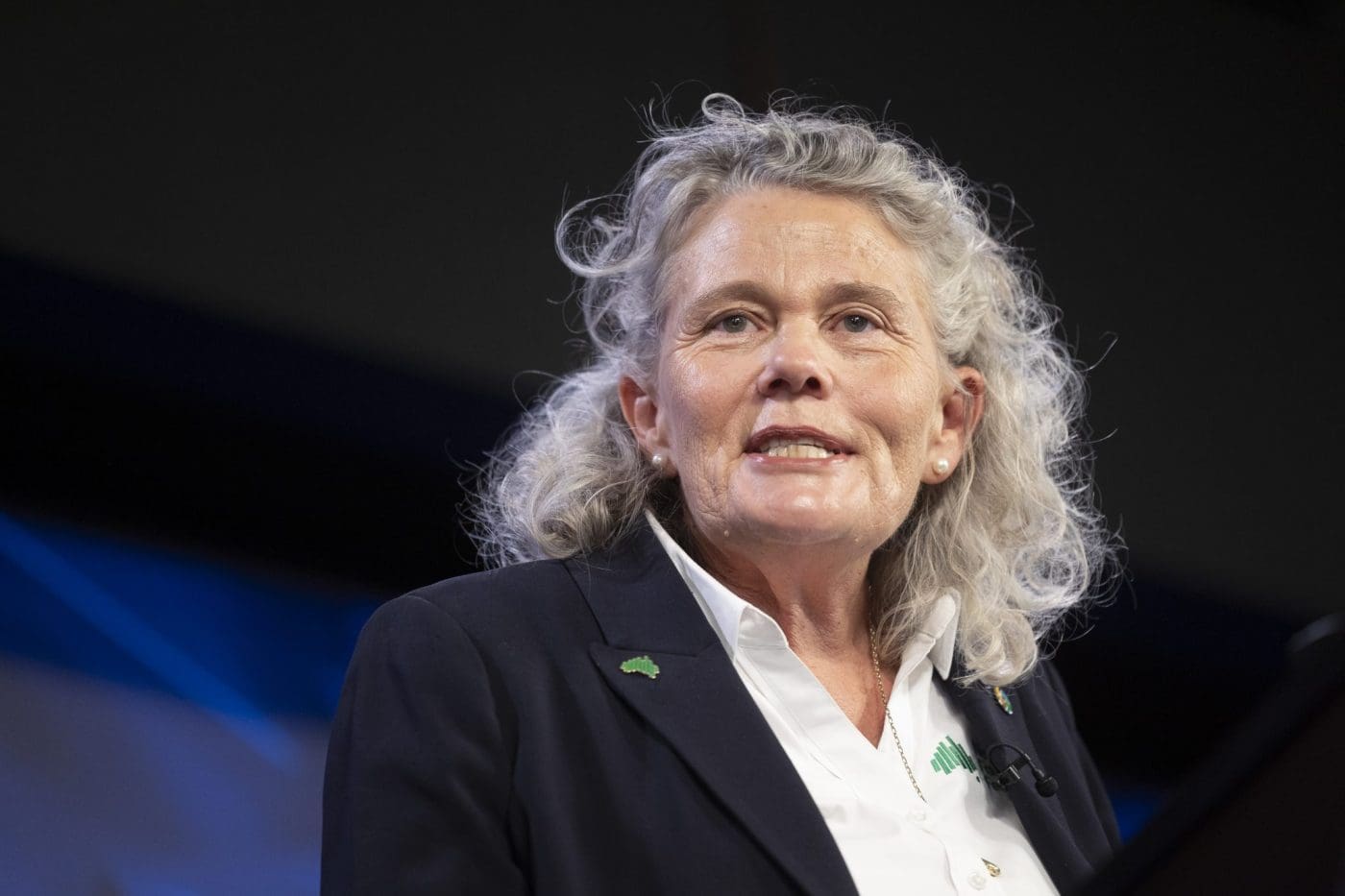
Fiona Simson addressing the National Press Club on her last day as NFF president. Photo: National Press Club
OUTGOING National Farmers’ Federation president Fiona Simson has addressed the National Press Club on her last day in the top job of Australia’s peak agricultural lobby group.
After being elected president of the NFF in 2016, Ms Simson has decided to step down, while continuing other advocacy roles including the World Farmers’ Organisaion. A new president will be elected tomorrow with Agforce president Georgie Somerset, current NFF vice-president David Jochinke and WA farmer and NFF board member Tony York all running.
Ms Simson covered many issues in her outgoing address including – climate change, diversity, a growing demand for food and telling the story of farmers.
However, ongoing negotiations about a free trade agreement with the European Union was one issue many were asking about.
The NFF, along with many other farming groups, have this week been urging the Australian Government not to sign on to an agreement that is detrimental to agriculture. Instead, they have been urging trade minister Don Farrell to continue negotiations if the deal is not workable and equitable with other countries like New Zealand and Canada.
“The current deal from the EU is not a good deal, it is not a commercially viable deal for any part of the agricultural sector,” Ms Simson said.
When asked by Guardian journalist Gabrielle Chan about the specific parts of the deal she was concerned about, Ms Simson said she was not able to go into specifics with the deal currently being discussed in Brussels.
However, she said many of the rules the EU had put forward were made sense in the European setting, but not in an Australian setting.
“Take the deforestation for example, I think the EU has clearing of the Amazon in mind and not the routine woody weed control that could be caught up in this legislation,” she said.
“Our rules are no less rigorous than the EU, they are just different.”
LIVE NOW: Fiona Simson, President of the National Farmers’ Federation, addresses the Rural & National Press Clubs of Australia. Tune in now on @abcnews or later on ABC iView.@hil_clix_pix pic.twitter.com/7dlvHrP2y2
— National Press Club (@PressClubAust) October 24, 2023
Australia’s leading environmental sustainability
Ms Simson said Australia has made itself a leader environmental sustainability and she had seen a significant change in culture – with agriculture recognising the climate and the world were changing and the industry needed to be ahead of it.
“That doesn’t mean we’ve simply decided to stop swimming and let the current take us. We’re entering the climate transition with our eyes wide open,” she said.
“We’re alive to the threats – such as the impact of a changing climate, or poor planning of renewables, transmission infrastructure and carbon offsets on agricultural land.
“We’re also alive to the opportunities – like positioning Australia as a global leader in low-emissions farming, and enabling farmers to make informed decisions about monetising their carbon resources. I’m also excited about the progress we’ve made in moving beyond simply talking about carbon, to kickstarting a more holistic discussion about the sustainability and natural capital attributes of our farms.”
Farmers’ voices need to be heard
Getting the voice of farmers into the national dialogue was one the points Ms Simson was keen to reiterate – saying farmers were needed to keep things in perspective.
“In a world where people are so insulated and disconnected from forces beyond their control, farmers are able to keep things in perspective.
“To understand that most things are cyclical in the long run. It’s that moderating voice in an increasingly polarised world that I think farmers bring to the political debate in Australia. While traditionally viewed as conservative, I’ve never thought that label sat well. Any successful farmer embraces change and embraces new ideas. They have to,” she said.
“But they don’t suffer nonsense, and they’re not easily swayed by ideas that might be fashionable but lack merit.”
However, she said it was important for the industry not to drive a wedge between city and country people.
“The ‘us and them’ rhetoric pushes us as farmers further from the people we ultimately serve. The people who eat our food and use our fibre,” she said.
“It plays on and deepens the damaging misconception some farmers hold that what they do isn’t valued by the broader community – and we know that has real repercussions.”
- To read Ms Simson’s full speech click here
